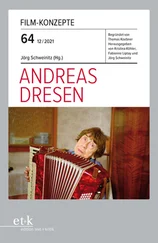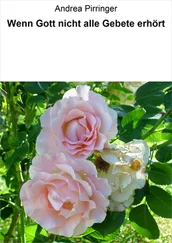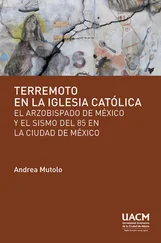Andrea Dworkin - Woman Hating - A Radical Look at Sexuality
Здесь есть возможность читать онлайн «Andrea Dworkin - Woman Hating - A Radical Look at Sexuality» весь текст электронной книги совершенно бесплатно (целиком полную версию без сокращений). В некоторых случаях можно слушать аудио, скачать через торрент в формате fb2 и присутствует краткое содержание. Жанр: Публицистика, на английском языке. Описание произведения, (предисловие) а так же отзывы посетителей доступны на портале библиотеки ЛибКат.
- Название:Woman Hating: A Radical Look at Sexuality
- Автор:
- Жанр:
- Год:неизвестен
- ISBN:нет данных
- Рейтинг книги:4 / 5. Голосов: 1
-
Избранное:Добавить в избранное
- Отзывы:
-
Ваша оценка:
- 80
- 1
- 2
- 3
- 4
- 5
Woman Hating: A Radical Look at Sexuality: краткое содержание, описание и аннотация
Предлагаем к чтению аннотацию, описание, краткое содержание или предисловие (зависит от того, что написал сам автор книги «Woman Hating: A Radical Look at Sexuality»). Если вы не нашли необходимую информацию о книге — напишите в комментариях, мы постараемся отыскать её.
Woman Hating: A Radical Look at Sexuality — читать онлайн бесплатно полную книгу (весь текст) целиком
Ниже представлен текст книги, разбитый по страницам. Система сохранения места последней прочитанной страницы, позволяет с удобством читать онлайн бесплатно книгу «Woman Hating: A Radical Look at Sexuality», без необходимости каждый раз заново искать на чём Вы остановились. Поставьте закладку, и сможете в любой момент перейти на страницу, на которой закончили чтение.
Интервал:
Закладка:
hoarding power and wealth which characterizes them
to this very day.
Returning to yin and yang, what is crucial is the
realization that these concepts did not originally attach
to sex. In more concrete terms, the Great Original (first
being) o f the Chinese chronicles is the holy woman T ’ai
Yuan, who was an androgyne, a combined manifestation o f yin and yang. Primacy is given to the feminine principle here (the gender o f the noun is feminine) because o f woman’s generative function.
Am ong the Tibetan Buddhists, the so-called male-
female polarities are called yabyum; among the Indian
Hindus, they are called Shiva and Shakti. In the Tantric
sects o f both traditions, one finds a living religious cult
attached to the myth o f a primal androgyne, to the
union o f male and female. One also finds, not surprisingly, that Tantric cults are condemned by the parent culture with which they identify. T h e culminating religious rite o f the Tantrics is sacramental fucking, the ritual union o f man and woman which achieves, even if
only symbolically, the original androgynous energy.
This is the outstanding fact when one looks at yabyum
and Shiva-Shakti:
The Hindu assigned the male symbol apparatus to the
passive, the female to the active pole; the Buddhist did


168
Woman Hating
the opposite; the Hindu assigned the knowledge principle to the passive male pole, and the dynamic principle to the active female pole; the Vajrayana Buddhist did it the other way around. 5
The explanation for this major difference, this attachment in one case of the feminine to the passive and in the other of the feminine to the active, is that these
attachments were made arbitrarily . 6 Two convictions
vital to sexist ontology are undermined: that everywhere the feminine is synonymous with the passive, receptive, etc., and so it must be true; that the definition of the feminine as passive, receptive, etc., comes from the visible, incontrovertible fact of feminine passivity, receptivity, etc.
In Hindu mythology, as opposed to Judaic mythology, the phenomenological world is not created by god as something distinct from him. It is the godhead
in manifestation. As Campbell describes it: “. . . the
image of the androgynous ancestor is developed in
terms of an essentially psychological reading of the
problem of creation. ” 7 In a description of that androgynous being, we find: “He was just as large as a man and woman embracing. This Self then divided himself into
two parts; and with that there was a master and a
mistress. Therefore this body, by itself, as the sage
Yajnavalkya declares, is like half of a split pea. ” 8
In Egypt one of the earliest forms of moon deity was
Isis-Net, an androgyne. The Greek Artemis was androgynous. So is Awonawilona, chief god of the Pueblo Zuni. The Greek god Eros was also androgynous.
Plato, repeating a corrupted version of a much


Androgyny: The Mythological Model
169
older myth, describes in Symposium 3 types o f original human beings: male/male, male/female, female/
female. These original humans were so powerful that
the gods feared them and so Zeus, whose own androgynous ancestry did not stop him from becoming the Macho Kid, halved them.
T h e Aranda o f Australia know a supernatural being
called Numbakulla, “Eternal, ” who made androgynes
as the first beings, then split them apart, then tied them
back together with hemp to make couples. It is essentially this story that is repeated throughout the primitive world.
Certain African and Melanesian tribes have ancestral images o f one being with breasts, penis, and beard.
Hindu statues which show Shiva and Shakti united participate in the same devotional tradition —we perceive that they are united in sexual intercourse, but it is
also possible that they represent one literal androgynous body.
T here are still devotional religious practices which
harken back to the mythology o f the primal androgyne
— Tantra, for instance, in both its Tibetan and Indian
manifestations, clearly participates in that tradition.
Possibly the rite o f subincision, practiced in Australia,
is similarly rooted in androgyne myth. Subincision is the
ritual slitting open o f the underside o f the penis to form
a permanent cleft into the urethra. T h e opening is
called the “ penis womb. ” Campbell notes that “T h e
subincision produces artificially a hypospadias resembling that o f a certain class o f hermaphrodites. ” 9
T he drive back to androgyny, where it is manifest, is
sacral, strong, compelling. It is interesting here to


170
Woman Haling
speculate on the incest taboo. The Freudian articulation
o f what the Oedipal complex is and means serves the
imperatives of a patriarchal culture, of Judeo-Chris-
tian morality, and remains largely unchallenged. But
the earliest devotional mother-son configurations are
those of a Mother/Goddess and her Son/Lover. The
son is lover to the mother and is ritually sacrificed at a
predetermined time (mothers don’t have to be possessive). This sacrifice is not related to guilt or punishment—it is holy sacrifice which sanctifies the tribe, does honor to the offering, and is premised on cyclic fertility patterns of life, death, and regeneration. These rites, associated with the worship of the Great Mother
(the first corruption of the Great Original, or primal
androgyne) involved ritual intercourse between mother
and son, with the subsequent sacrifice of the son. At
one time both a son and a daughter were sacrificed, but
as the daughter became a mother-surrogate, the son
was sacrificed alone. This sacralized set, Mother/God-
dess-Son/Lover, and the rituals associated with it, are
postandrogyne developments: that is, men and women
experienced separateness (not duality) and attempted
to recreate symbolically the androgynous state of mind
and body through what we now call incest. If it is true
that the implications of the androgyny myths in terms
of behavior run counter to every Judeo-Christian, or
more generally sexist, notion of morality, it would follow that incest is the primary taboo of this and similar cultures because it has its roots in the sexually dynamic
androgynous mentality. Indeed, it is not surprising
to discover that early versions of the Oedipus story do
not end with Oedipus putting his eyes out. Sophocles

Интервал:
Закладка:
Похожие книги на «Woman Hating: A Radical Look at Sexuality»
Представляем Вашему вниманию похожие книги на «Woman Hating: A Radical Look at Sexuality» списком для выбора. Мы отобрали схожую по названию и смыслу литературу в надежде предоставить читателям больше вариантов отыскать новые, интересные, ещё непрочитанные произведения.
Обсуждение, отзывы о книге «Woman Hating: A Radical Look at Sexuality» и просто собственные мнения читателей. Оставьте ваши комментарии, напишите, что Вы думаете о произведении, его смысле или главных героях. Укажите что конкретно понравилось, а что нет, и почему Вы так считаете.












